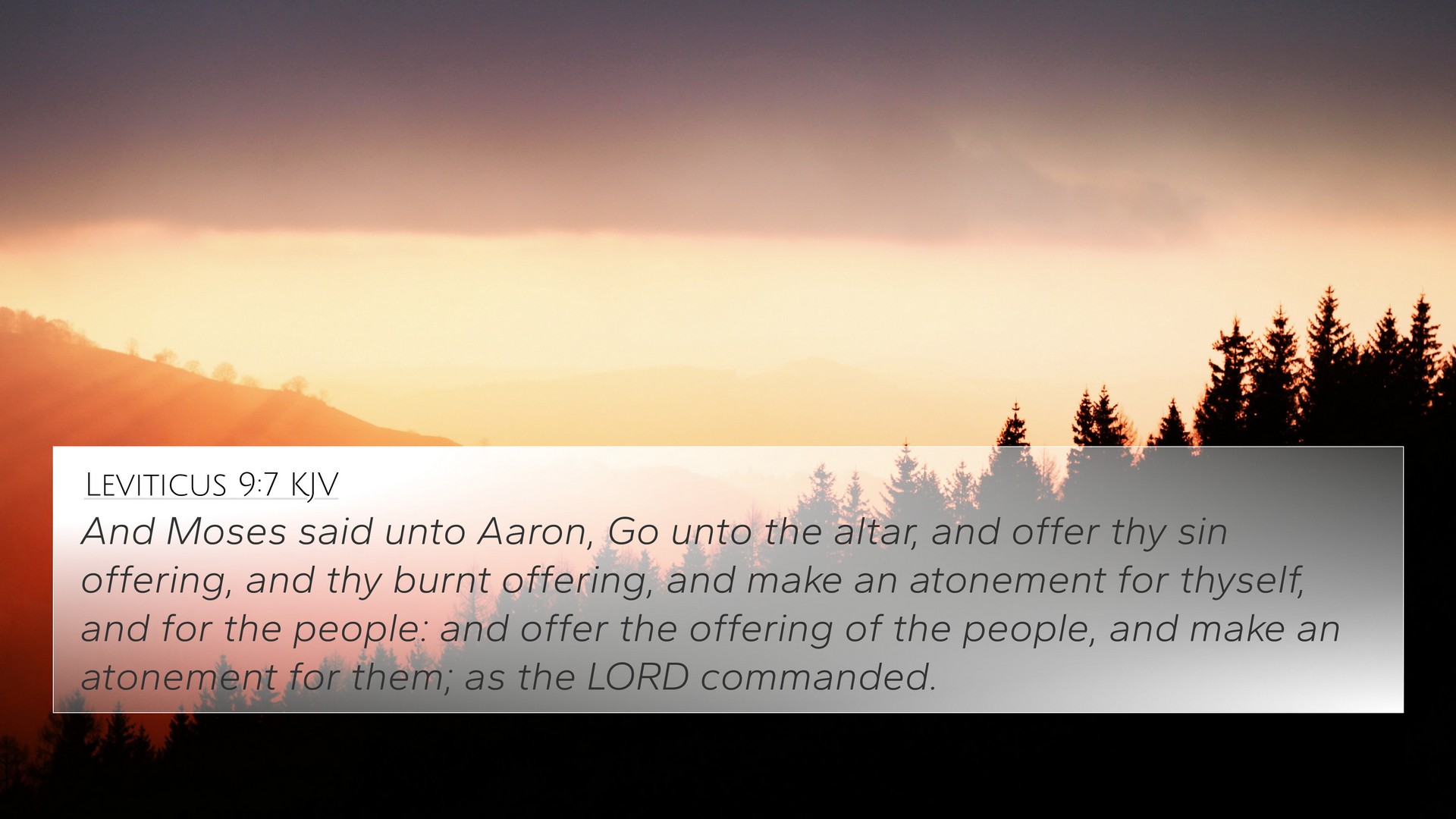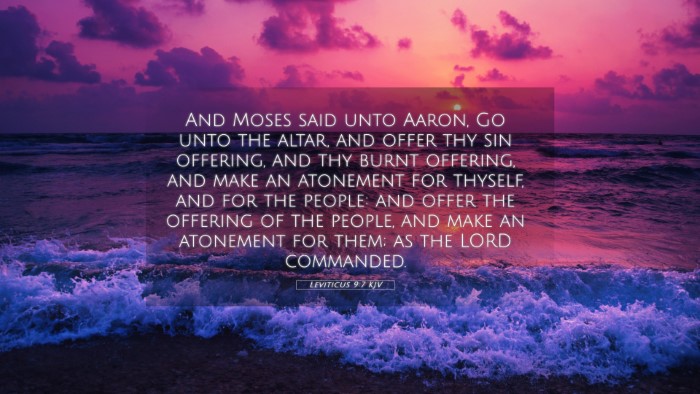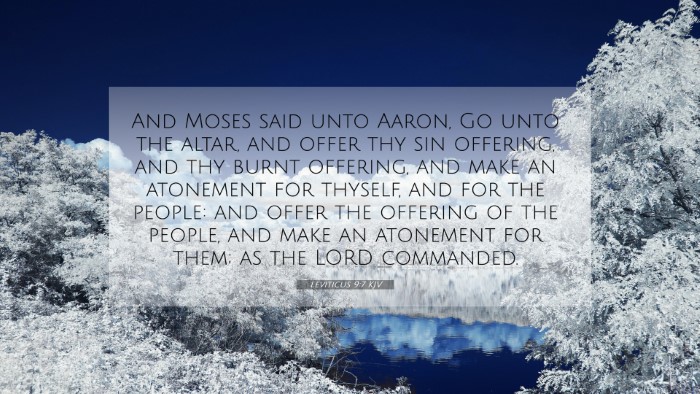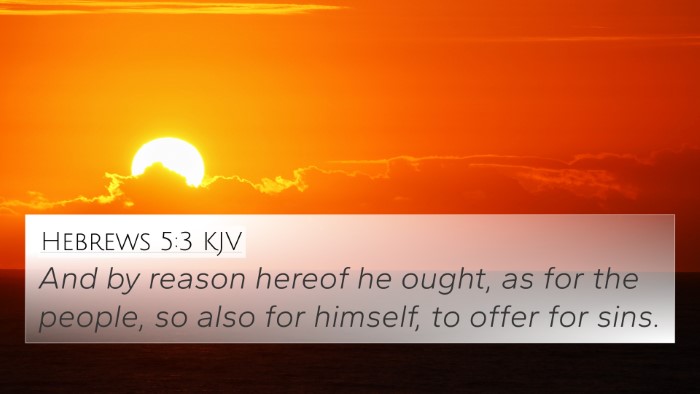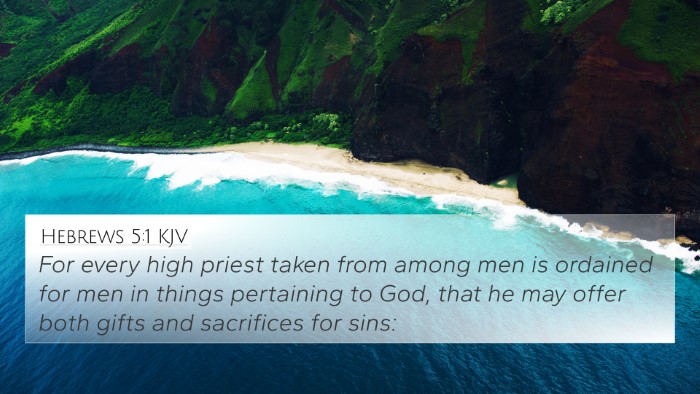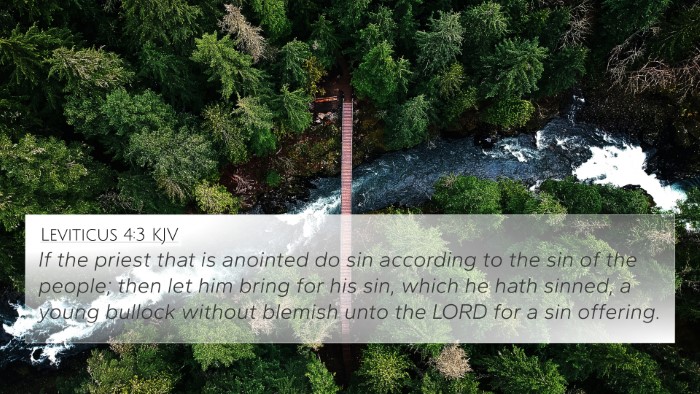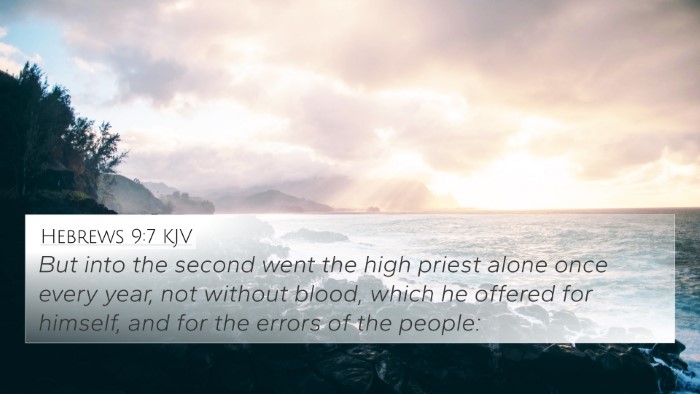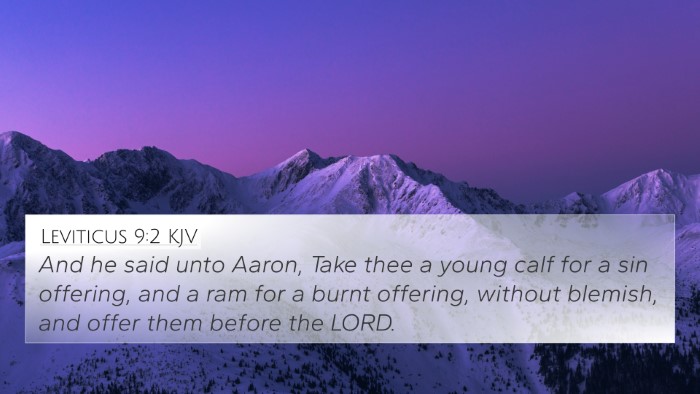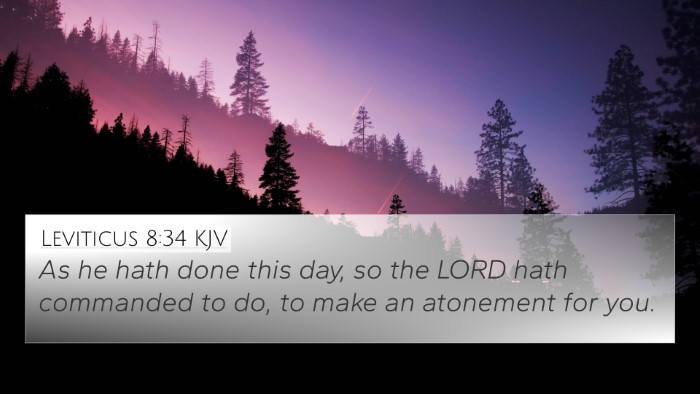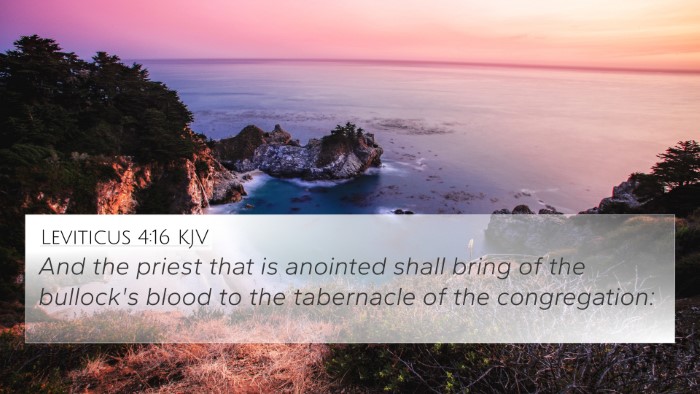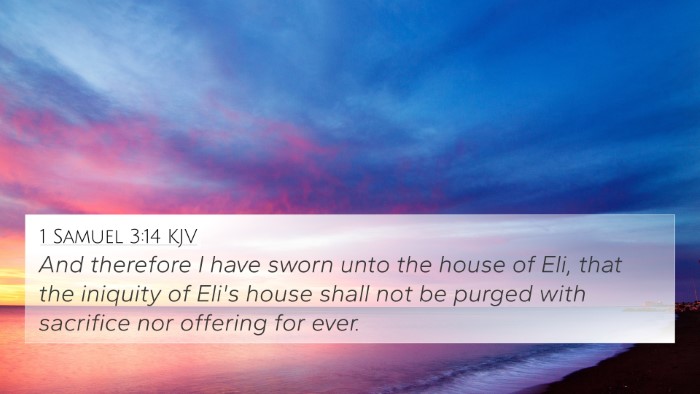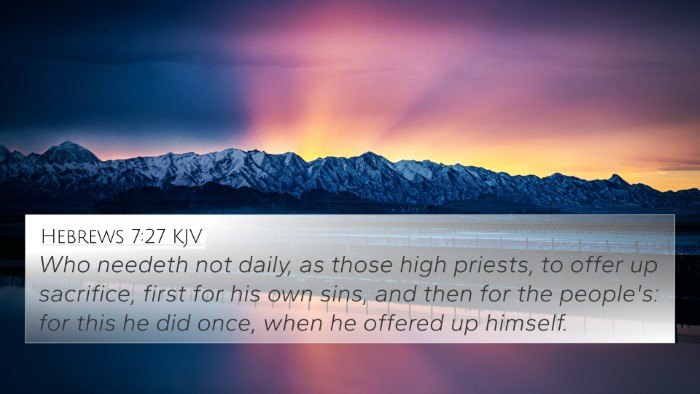Understanding Leviticus 9:7
Bible Verse: Leviticus 9:7 - "And Moses said unto Aaron, Go unto the altar, and offer thy sin offering, and thy burnt offering, and make an atonement for thyself, and for the people: and offer the offering of the people, and make an atonement for them; as the LORD commanded."
This verse is part of the larger context of the inauguration of the priesthood, where Aaron, as the first high priest, is instructed by Moses on the sacrifices he is to offer for himself and the people. It symbolizes the critical role of sacrifice in the covenant relationship between God and the Israelites.
Commentary Insights
Matthew Henry's Commentary
Matthew Henry emphasizes that in Leviticus 9:7, Moses commands Aaron to first make an atonement for himself. This indicates the necessity of the priest’s personal holiness before he can intercede for others. The sin offering signifies acknowledgment of sin, and the burnt offering symbolizes complete dedication to God. Moses acts here as a mediator, appointing Aaron to fulfill roles that point to the future fulfillment in Christ.
Albert Barnes' Commentary
According to Albert Barnes, the command from Moses illustrates the sacrificial system's foundational principles. Each offering has distinct purposes, where the sin offering seeks to address guilt and sin, and the burnt offering serves to express commitment to God. Barnes notes that the dual role of offering for oneself and for the people underscores the need for proper purification before God.
Adam Clarke's Commentary
Adam Clarke adds that this instruction highlights the significance of the altar in these sacrificial acts. The altar represents a place of meeting and atonement between God and His people. Clarke explains that Aaron’s offerings not only purify him but also make him capable of serving as a representative for the nation, reflecting the seriousness of approaching God without proper atonement.
Cross-References
- Hebrews 5:3: Discusses the priest's obligation to offer for sins, including his own.
- Exodus 28:41: Details Aaron and his sons being consecrated for priesthood.
- Numbers 6:11: Shortcomings in offering can lead to uncleanliness.
- Leviticus 16:16: The Day of Atonement and the necessity of atonement for the people.
- Romans 8:34: Christ's role as our intercessor, linking the concept of Old Testament atonement to New Covenant fulfillment.
- John 1:29: Jesus as the Lamb of God, tying to the sacrifice theme in Leviticus.
- Ephesians 1:7: Redemption through Christ's blood signifies the culmination of sacrificial offerings.
- 1 Peter 2:5: Believers are a royal priesthood, resonating with Aaron’s role.
- Exodus 30:10: The annual atonement for the altar, reinforcing the need for continuous atonement.
- Matthew 27:51: The veil torn at Jesus' death illustrates direct access to God post-atonement.
Thematic Connections
The instruction given in Leviticus 9:7 not only serves as a practical command within Levitical law but also establishes profound theological themes, particularly the need for atonement and the role of priesthood that echoes throughout Scripture. This contributes to a deeper understanding of covenant relationships in the Bible.
Comparative Bible Verse Analysis
By performing a comparative study of Leviticus 9:7 with cross-referenced verses, one can grasp the importance of blood sacrifices in the Old Testament as a foreshadowing of the ultimate sacrifice made by Jesus Christ. This establishes a continuous thread of God’s redemptive plan through generations.
Tools for Bible Cross-Referencing
Utilizing resources like a Bible concordance, Bible cross-reference guides, and cross-reference systems can greatly enhance the study of Leviticus 9:7 by uncovering inter-Biblical dialogues and thematic connections that enrich comprehension and application of the text.
Conclusion
Leviticus 9:7 serves as a pivotal verse within the context of Israel's sacrificial system and the priestly role. Cross-referencing this verse with others facilitates a deeper understanding of the interplay between the Old and New Testaments, revealing the continuity and fulfillment of God's plan for humanity through Jesus, the ultimate high priest and sacrifice.
